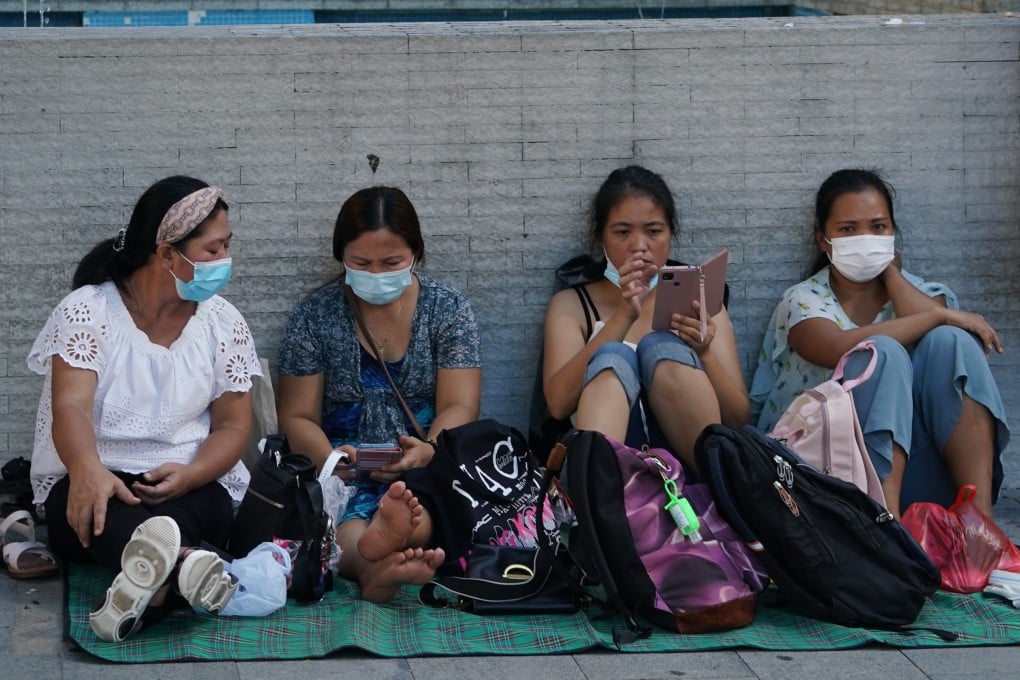Opinion | Domestic workers ineligible for consumption vouchers in Hong Kong – how is this fair or just?
- Once again, Hong Kong’s consumption voucher scheme to spur economic recovery will only cover permanent residents and new migrants from mainland China
- Domestic helpers don’t qualify because they are not permanent residents – a status denied them no matter how many years, even decades, they toil in the city

In April, about 6.3 million Hong Kong residents will receive the first instalment of a new batch of HK$10,000 (US$1,280) consumption vouchers aimed at helping them and stimulating the coronavirus-hit economy.
But one undervalued and overworked section of the community – the city’s 340,000-strong workforce of foreign domestic helpers, mostly Filipinos and Indonesians, who face more challenges than most – will miss out. Again.
Helpers are ruled out of the handout because of a deeper issue: they are not eligible for permanent residency, even if they have stayed in Hong Kong for seven years without interruption, the length of time other foreigners must live in the city to be eligible for right of abode.

This is unjust, reeks of discrimination and exacerbates race and gender divides.
